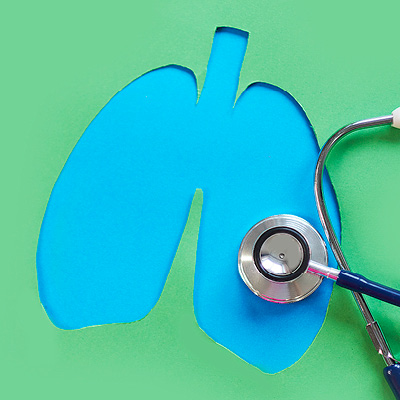Vitality eNews Sign Up
Receive the Summa Health eNewsletter for the latest health tips, advice and updates.
Living with COPD? What you need to know
Posted March 01, 2021

Smoking cigarettes is a dangerous habit that damages nearly every organ in the body, leading to disease and long-term disability.
People who smoke are at a higher risk for lung cancer, stroke, heart disease, diabetes, tuberculosis, eye diseases, and the list goes on. Another major health effect caused from smoking is chronic obstructive pulmonary disease or COPD.
COPD is a lung disease that affects the way air flows in and out of your lungs, making it difficult to breathe. According to the American Lung Association, more than 16 million Americans have COPD and it is the third leading cause of death by disease in this country.
COPD is a preventable disease caused by damage to the lungs over many years. Often times, it is a blend of emphysema and chronic bronchitis.
Emphysema is caused by lung damage from overstretched air sacs, which weaken and rupture over time. They lose surface area in addition to their ability to get smaller to push air through the lungs and exhale effectively, causing shortness of breath. And with less air moving through the lungs, less oxygen gets to your body organs and it’s more difficult to rid the lungs of carbon dioxide waste.
With chronic bronchitis, the bronchial tubes, which carry air to the lungs, get inflamed and create too much mucus. This can narrow or block the airways, making it difficult to breathe.
Unfortunately, the damage from smoking cannot be undone and it tends to get worse over time. Though COPD is incurable, there are things you can do to help manage symptoms. Summa Health discusses the steps you can take to prevent further damage, breathe easier and live a better life.
Risk factors for COPD
COPD is almost always caused by smoking. But, there are other factors that can put you at risk, including:
Symptoms of COPD
It usually takes several years for lung damage to occur and present symptoms. Therefore, COPD is most common in people over the age of 60.
Common COPD symptoms include:
Some patients experience COPD exacerbation, where severe symptoms suddenly flare up. These flare-ups can range from mild to life threatening.
Treatment for COPD
To diagnose COPD, your doctor will perform a physical exam, listen to your lungs, and discuss your family history and lifestyle. He also will likely order a breathing test, take chest X-rays and do blood work.
The best treatment for COPD is to stop or slow down the lung damage. So, first and foremost, try to quit smoking. It’s never too late to quit. No matter how much or how long you’ve smoked, quitting now can help stop the ongoing damage to your lungs.
Your doctor can prescribe treatments to help manage your symptoms and help you feel better. There are medicines that you can inhale to help you breathe easier. You may also need oxygen therapy to increase oxygen levels in your blood so it can be delivered to your vital organs..
In severe cases, surgery may be an option to remove the diseased portion of your lung or have a lung transplant.
Your doctor will also likely recommend a pulmonary (lung) rehabilitation program to improve breathing, nutrition and exercise. A respiratory therapist can teach you breathing techniques to help control shortness of breath while exercising. In addition, the program can help you increase exercise tolerance and provide additional education on how to manage your disease.
Patients with COPD are more susceptible to lung infections and pneumonia, so staying up to date on flu and pneumococcal vaccines also are important.
The more you know about COPD, the better you can manage the disease, breathe easier and feel more in control of your life.
